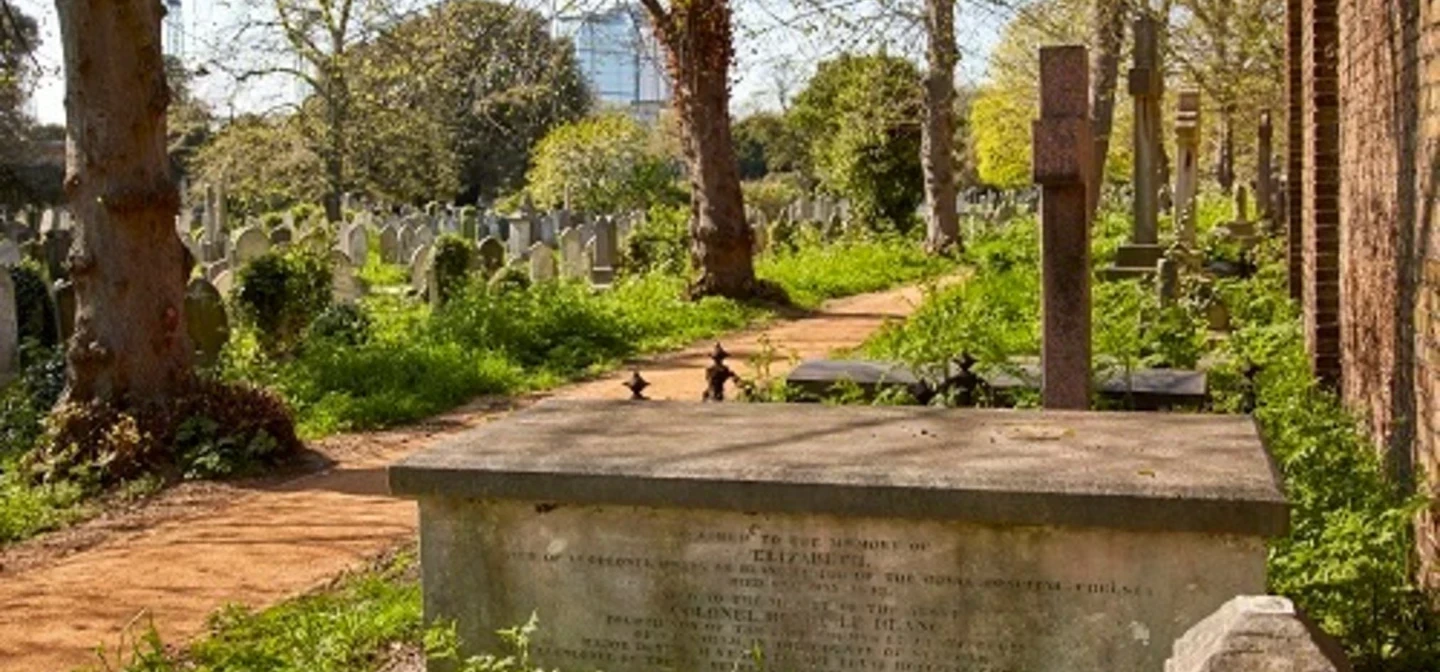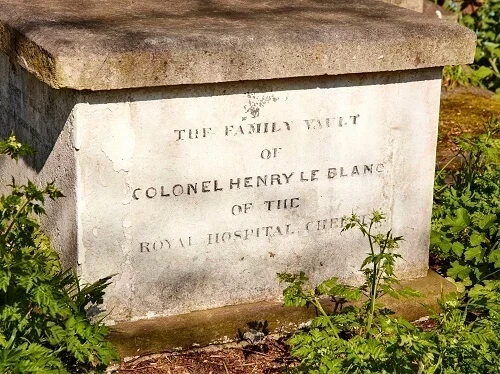
Lt. Colonel Henry Le Blanc (1776-1855)
The soldier who lost a leg in battle and went on to fight at Waterloo.
Battle of Waterloo
Henry Le Blanc had a premonition, just before he fought the Spanish in South America in 1806, that he would lose his leg in the battle. He was so convinced by the vision that he learned how to tie a tourniquet and found a stick to use as a crutch.
His preparations almost certainly saved his life, because his leg was blown off by a Spanish cannonball. Incredibly, Henry went on to serve in the cavalry at Waterloo nine years later.

Royal Hospital Chelsea
After Waterloo, Henry spent his career as Major – second in command – at the Royal Hospital Chelsea, where he was nicknamed Stumpy! He was popular and well-respected at the Hospital, thanks to the important improvements he made there for the retired army residents.

Family grave
Henry’s experiences in South America weren’t his only brush with death. In 1844, he and some members of his family tried to take a shortcut across an estuary in South Wales, and were nearly swept away. In gratitude for being saved, he paid for a bell at the nearby church.

When Henry’s wife died a few years later, she was buried at the Royal Hospital. The burial ground was closed in 1854, so Henry had Elizabeth’s remains moved to a family tomb in Brompton Cemetery. The following year, Henry died and was laid to rest there with her.